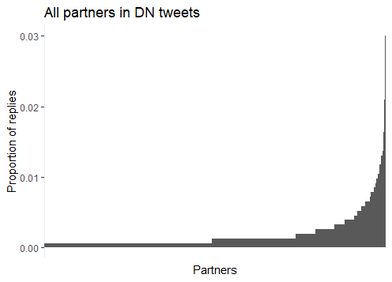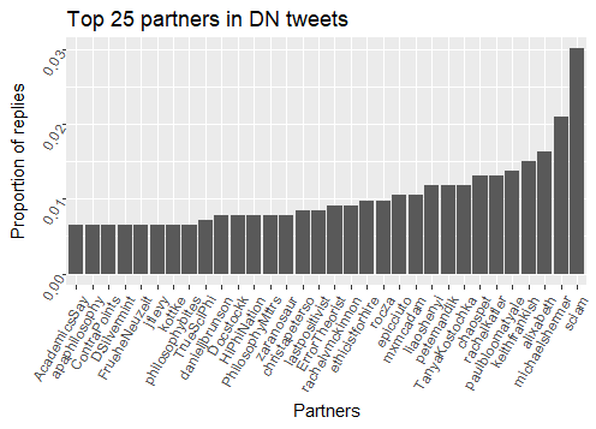 True confession: prior to grad school, I’d never heard of Leonard Cohen. Shocking as it might be, I’d made it 23 years without ever knowing who he was or what he did. One day, at some grad school get together thingy at the library, I was chatting with another 1st year philosophy grad student. He mentioned something about Leonard Cohen and I said, “who’s Leonard Cohen?” and I swear to all that’s holy I could hear the record scratch as he said, “you don’t know who Leonard Cohen is?” Every grad student in earshot looked on in horror. Now, some might try to recover from this social fumble. “Oh, LEONARD COHEN. Sorry I must have misheard you. Love the early stuff. Listened to it all the time back in the day.” If you think this is me, then clearly we haven't met. My new attitude, adopted on the spot in the foyer of the library, was: FUCK. LEONARD. COHEN. Fun fact: to this day, I haven’t wavered one iota. Any time Leonard Cohen is mentioned, I roll my eyes heaven-ward, give a great groan, and try to bring up some obscure band in an eternal and fruitless game of cultural one-ups-man-ship. BTW if you’re not listening to Yndi Halda, in particular their debut masterpiece Enjoy Eternal Bliss, are you even living? Another true confession: I didn’t talk to a lot of super famous people in grad school. I was married my 2nd year in, and had my 1st kid my 3rd year. I didn’t have any support from the university, so I adjuncted my ass off (nearly 4 dozen classes under my belt by the time I landed a TT position, thank you very much). That’s all to say that many of my friends and colleagues can recount stories with famous philosophers, using their first name to refer to them. (“Oh yeah I loved class with Jason. It was amazing when Sally was on campus to give a talk and they co-taught a seminar on society and justice. CHANGED MY LIFE.”) I changed a shit-ton of diapers and learned how to repair my 1990 Volvo station wagon in between grading rounds of intro papers. To former students: I’m sorry for any grease I got on your papers. I mention this because professional philosophy feels like a club where there are insiders and outsiders. Insiders get to refer to famous people by first name and tell silly stories about them. Outsiders smile politely. Social media — and the Interwebs in general — is, I think, one way that the playing field might get leveled. Hey you might not have been accepted to Rutgers or NYU but shit you can take a crack at things on Leiter’s blog and maybe get some recognition! I didn’t do this but I imagine others might. Two possibilities. (1) the Interwebs & social media are the great equalizer. Anyone who wants a shot to get to know a Big Shot can. (2) the Interwebs & social media follow something like a Matthew Effect. So which is it? Who gets talked about in philosophy social media? I was going to look at Leiter’s Twitter, but it’s set to private. I have no desire to friend-request him for the sole purpose of seeing who he @’s at. @DailyNousEditor, however, is a public account. I emailed Dr. Justin Weinberg (I can call you “Justin” now, right? We’re buddies. Oh the many silly things we’ve talked about and done…*). I wanted to run the idea past him of analyzing and blogging about the @DailyNousEditor account — hereafter referred to as ‘DN’. He kindly agreed and expressed interest in the results. I’m making this a multi-part post: the first is just looking at the folks with whom the DN account engages most frequently. I’m pretty sure that Justin is responsible for most or all the tweeting at the DN account. But rather than “Justin does this” or “Justin does that” I’m going to talk about what the DN account does and with whom it engages. Also, I’ll talk about accounts rather than people. The reason isn’t super philosophical. It just sounds less dickish to my ears to put things that way. Same content, less assholery. With that, let’s forge ahead. Small technical note: for this analysis, I used R 3.5.3 and the packages rtweet, tidyverse, tidytext, and ggrepel. The code (ugly as it is) will eventually go up on my Github: github.com/cslassiter. There’s nothing special about R 3.5.3; I just haven’t gotten around to updating to the latest version. DN has 15.7K followers (15,724 to be precise, as of today). Not as many as Nate Silver (3.7M) but way more than me (52). DN follows 415 accounts. There are 251 accounts in center of the Venn diagram of DN followers and following. So far, so good but not really all that interesting. At whom, exactly, does DN tweet most often? Do to this, we grab all the info we can for DN’s most recent 3,200 tweets (as of Sept 3, 2019 at 12:24 pm PDT). That’s what the Twitter API limits searches to. This takes us back to March 1, 2016. There are 90 variables, but I’m interested in: 1. When the tweet was created 2. To whom the tweet was a reply (if anyone) 3. Anyone mentioned in the tweet (if anyone) 4. Number of retweets 5. Number of “favorites” I’m collapsing (2) and (3) into a single value, “partners”. This captures both who is directly addressed as well as who is talked about. First let’s look at the structure of partnerings. (Oh, BTW I scaled the values to be relative to the total number of times someone was a partner. So the values on the left are the proportion of parternings to total partnerings.) This looks something like a Matthew Effect at work, but it's far from certain. The few who have lots of partnering may be benefiting from a "rich get richer" kinda thing. It's clear by the long leftward tail and sharp uptick on the right that a few accounts grab most of the partnerings while many others only grab a few. One account garners 3.0085023% of partnerings while 258 accounts get .006540222%. Now let's zoom in on the top 25 partners. A few interesting things here. First, of the top 25 partners for the DN account, most are partnered with less than 1% of the time. So while DN might partner with many accounts, none of them take up the lion’s share. So who are the lucky winners? @sciam, followed by @michaelshermer, and then @alixabeth. If you’re wondering what’s up with the first two, it’s that the DN account took Scientific American to task for this article by Michael Shermer...which, admittedly, is kind of a shit article. Populating the top 25 slots are academic groups/organizations (@kottke, @academicssay), philosophy groups/organizations/popularizers (@apaphilosophy, @HiPhiNation, @philosophybites, @epicciuto), folks who do comics for Daily Nous (@chaospet, @petemandik, @rachelkatler, @TanyaKostochka), and philosophers, both better and less-well-known (at least “less-well-known” to this philosopher of mind and epistemologist in the Inland Northwest USA — but then again see rant from above). They seem to fall into a few broad categories: Phil of sex/gender ContraPoints Docstockk Christapeterso rachelvmckinnon Academic famous (>5k followers) Keithfrankish Paulbloomatyale jtlevy DSilvermint Lastpositivist ErrorTheorist Zaranosaur ethicistforhire Other (<5k followers) Liaoshenyi rocza Mxmcadam FrueheNeuzeit danieljbrunson I don't know what pulls together the "Other" category. It’s a little odd that they make the top 25 despite not being as popular on academic Twitter as others. That's all for today. More analyses on this dataset forthcoming, most immediately breaking out the top partners by year. *We haven’t done any but I don’t make fun of your social life, DO I?
0 Comments
Leave a Reply. |
About me
I do mind and epistemology and have an irrational interest in data analysis and agent-based modeling. Old
|


 RSS Feed
RSS Feed
